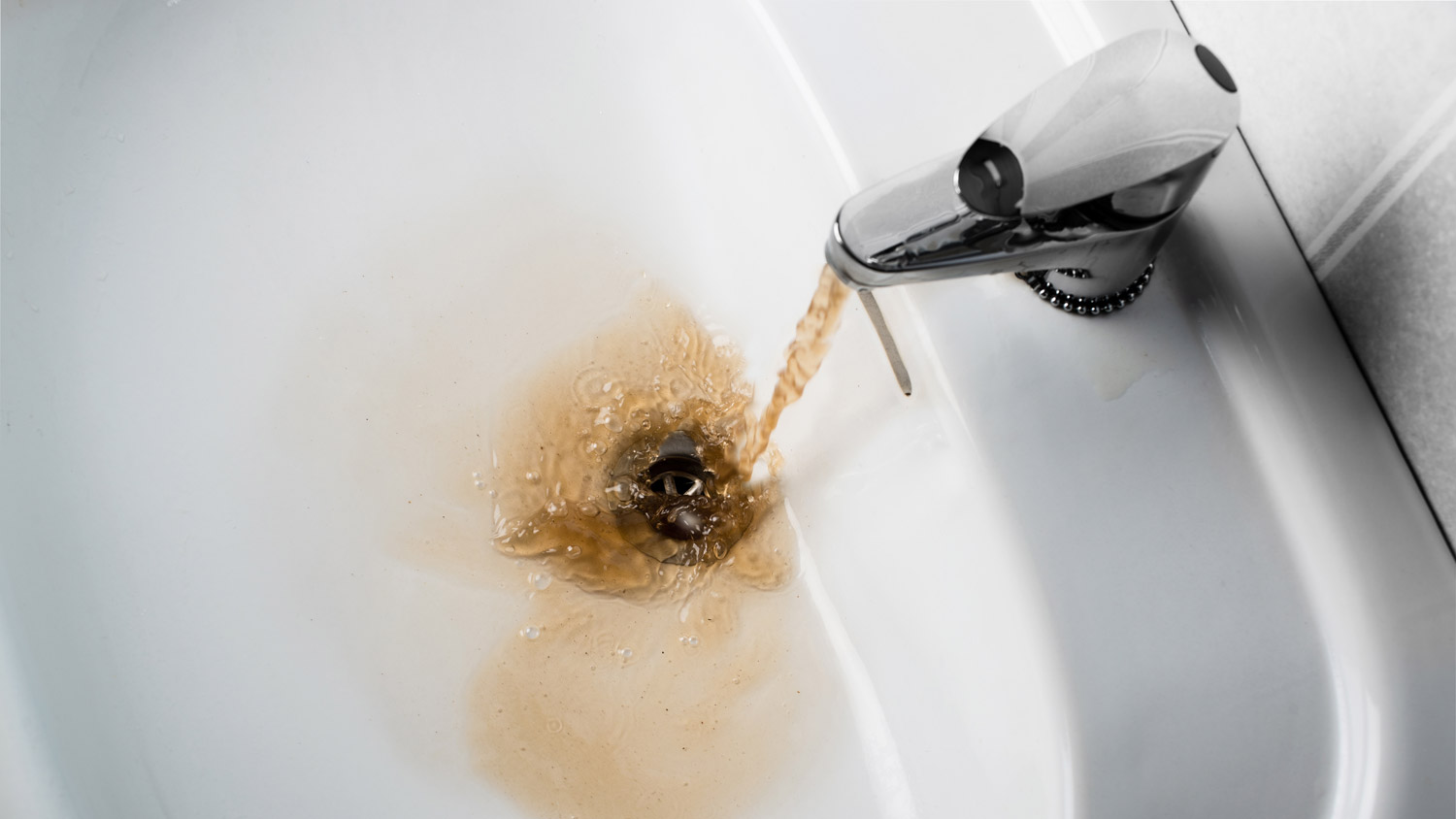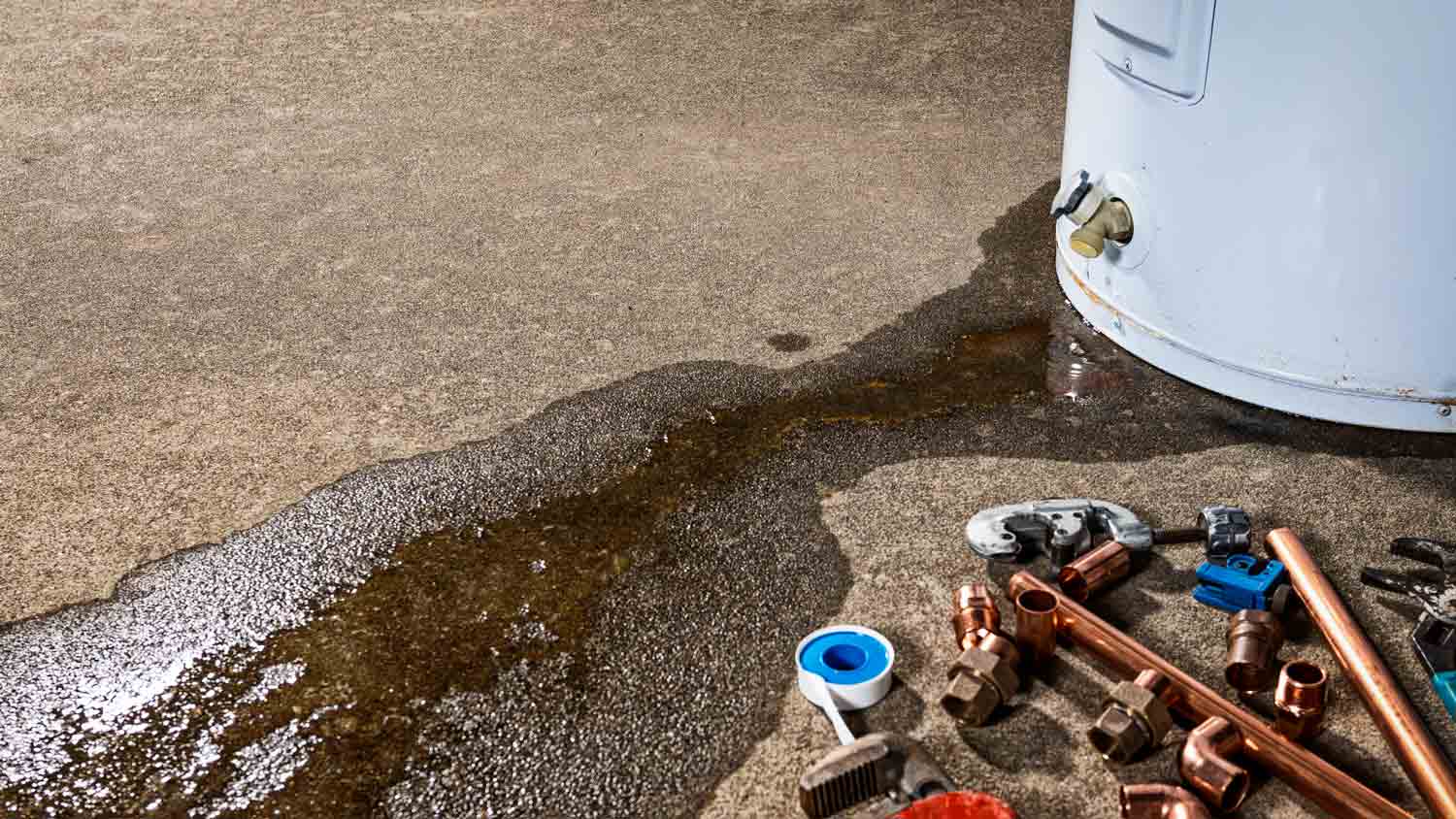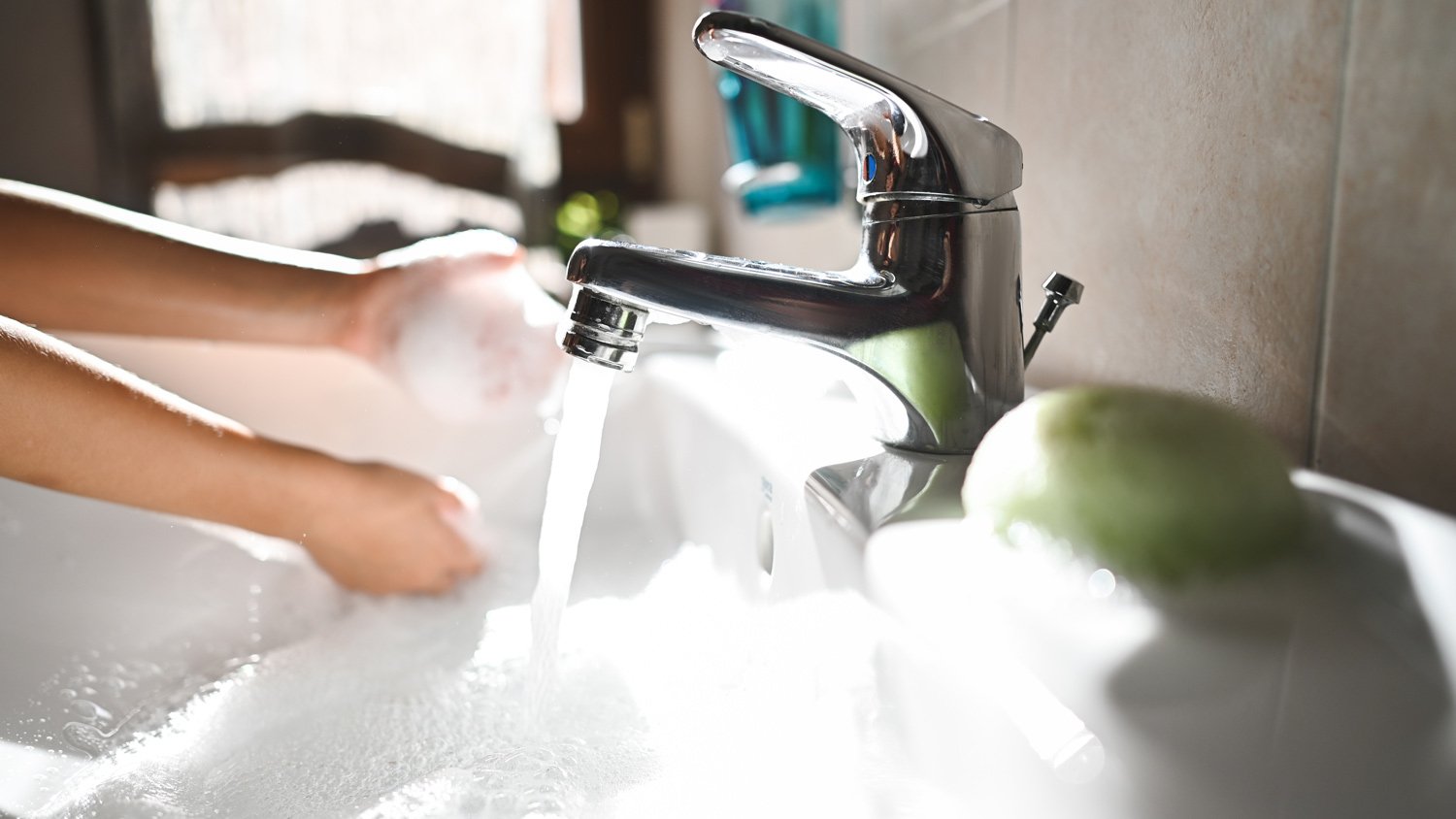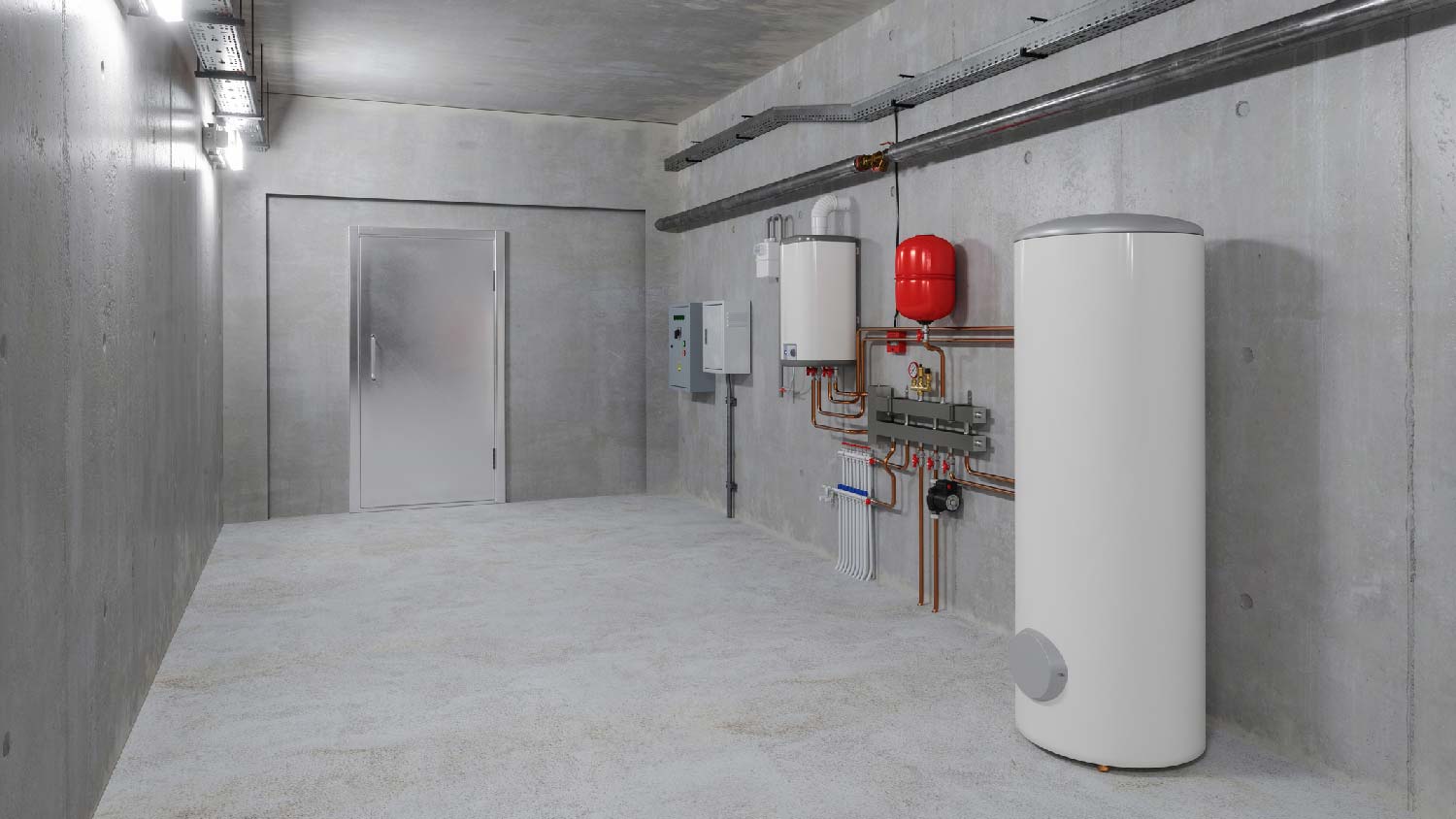Top 7 Signs You Need a New Water Heater
It's time to look for a new water heater if you notice these signs


Noises, odors, pooling water, and visible rust in your water are some of the signs you need a new water heater.
Most water heaters last about a decade, so if you start seeing issues at the 15-year mark, you should consider getting a new one automatically.
Water heater replacement won't be an easy DIY job.
While replacing a water heater costs between $882 and $1,802 on average, you could spend between $221 and $980 for repairs if a local pro discovers that the problem is fixable.
Could your water heater be failing? While some issues are fixable, there are times when a replacement is the best option. Here are seven signs you need a new water heater.
Signs You Need a New Water Heater
Your water heater will sometimes show you that it's time for a replacement with a sudden breakdown. In other cases, you may find yourself battling recurring problems until you decide it's time to upgrade. It might be time to start talking to a plumber about your options if you notice any of the things on this list.
1. Rusty Water in Your Sink

Have you noticed rust-colored water in your sink? Your first thought may be that there's a problem with your faucet or pipes. However, the rust could be coming from inside your water heater tank. Another telltale sign that a water tank is rusty is strange orange staining on your clothes and towels. Due to the fact that rust cannot be reversed, water heater replacement is usually recommended.
2. Your Water Smells
Don't automatically blame a strange smell in your water on the water source. If the water coming from your taps has a metallic smell, this is often a sign that your hot water tank is corroded. Some people can actually taste hints of metal when water heaters are corroded badly enough.
3. Odd Noises
Is your water heater suddenly becoming noisy? Water heaters that are on their way out often make loud cracks, pops, and banging sounds. Those strange sounds you hear are probably caused by hardened sediment banging around inside your water heater.
4. Your Water Isn't Getting Hot
Among all of the signs you need a new water heater, this one is the most obvious. The biggest sign that your water heater has burned out is that you aren't getting any hot water. Water may instead be cold or tepid. Of course, you'll want to make sure that your water heater hasn't stopped working after a power shortage at your home before you make plans to toss it away. Check on the circuit breaker or pilot light to see if the water heater has accidentally been shut off first.
5. Pooling Water Around Your Water Heater

If you've noticed standing water around your water heater, this points to a breakdown that requires replacement. First, it's important to know that small pools of water that collect around a water heater tank can be normal. You'll want to simply keep an eye on tiny bits of moisture accumulation that pop up near the water heater.
If standing water becomes severe, this is a sign of a catastrophic leak that most likely can't be repaired. Pooling water around the base of the water indicates that the inner tank has reached the end of its useful life span. This problem usually starts with slow drips that increase until there's a serious flood event after the tank fully erodes and breaks down. Consider your water heater in urgent need of replacement if you see standing water on the floor.
6. Constant Repairs
If your water heater keeps breaking down or having constant water heater problems, it might be best to proactively replace it before it causes serious damage to your home. Smelling rotten eggs and seeing brown water in the water heater tank are two of the signs your water heater is going to explode. There's a good chance that your water heater isn't working at optimal efficiency if it constantly needs repairs. Do a cost comparison of ongoing repair costs versus water heater replacement cost to see which option is better in the long run based on how much you're already spending per year on repairs.
7. You've Head Your Water Heater for More Than 15 Years
If your home's current water heater was installed more than 15 years ago, trying to keep it alive could be futile. That's because water heaters only last between eight and 12 years on average. Any water heater over 10 to 12 years old has probably fulfilled its useful life span once it begins having ongoing problems. If you aren't sure of the age of your water heater because you've purchased an older home, have a licensed plumber examine the unit to give you some answers on its age and condition.
How to Know You Need to Hire a Pro for Water Heater Replacement
Call a pro immediately if you notice any of the signs your water heater is going to explode. Water heater removal and installation should generally be performed only by licensed plumbers or water heater installation experts. While you may feel comfortable looking into the water tank or inspecting valves to try to get an idea of the damage, homeowners should avoid DIY water heater repairs. Handling water heaters can result in electrocution and water damage.
If you suspect that severe erosion, leaking, or risks for explosion are present, consult a professional before attempting to inspect a water heater on your own. Another reason to call a professional before trying to replace your water heater on your own is that they may be able to flush your water heater tanks, replace valves, add new heating elements, or scrape away superficial rust to give you a few more years of life from your water heater before you need to actually replace it.
Can I DIY Water Heater Installation?
Yes, installing your own water heater is possible as long as you follow the manufacturer's instructions. However, homeowners should be aware that installing a new water heater isn't as simple as turning on a switch. Water heaters are among the few appliances connected directly to the home's electrical and plumbing. You'll need to be comfortable with installing tubes and plumbing fittings. If the installation is done improperly, it could void your new water heater's manufacturer warranty. Most plumbers and local water heater installers add warranties to their work that keep you protected beyond the manufacturer's warranty. Going the DIY route also means you won't get the benefit of having a professional help you select the most efficient water heater for your home size and water usage.
How to Prevent the Need for Water Heater Replacement

While no water heater is meant to last forever, you can prevent the need for a premature replacement by taking good care of your water heater. General preventative care and maintenance on a water heater can stop sediment buildup and clogs that are often responsible for breakdowns. Your water heater's maintenance checklist should include:
Flush your water heater every six months to remove sediment. If your home has hard water, consider flushing it every four months.
Inspect for rust or leaks.
Test the temperature/pressure relief (TPR) valve.
Inspect the anode rod to determine if it needs a replacement.
Evaluate temperature settings for the most efficient performance possible.
How Much Does It Cost to Repair or Replace Water Heater?
The average water heater replacement cost falls between $882 and $1,802. If it turns out your water heater just needs repairs or replacement parts to be up and running again, the price range for water heater repairs is between $221 and $980.
Many small water heater components cost less than $50 to replace. If you need to replace an anode rod or dip tube, the cost is $25 to $75 each. Heating elements cost between $15 and $60. Gas burner replacements cost around $175. If you need to replace a gas valve or thermostat, parts can cost $200 to $400. Most plumbers charge between $45 and $150 per hour for labor when replacing or repairing water heater parts.
In general, installation and repair costs on tankless water heaters are higher compared to standard water heaters. While the cost of a standard water heater ranges from $600 to $2,500 for various sizes, tankless units range in cost from $1,200 to $3,500. Be sure to get multiple quotes from local pros before making your decision about the best type of water heater for your home.
Frequently Asked Questions
If you're replacing a broken water heater, now is a great time to make sure you're selecting a unit that has the right capacity for your household. According to the U.S. Department of Energy, a small 50-gallon to 60-gallon tank is sufficient for households with one to three people. A medium-sized 80-gallon tank is considered ideal for three to four people. A larger tank may be needed if your household has four to six people.
Tankless water heaters heat water as it passes through the unit instead of storing heated water in the tank. Their ability to produce hot water on an as-needed basis makes them more efficient. However, they are generally more expensive than traditional units. Is a tankless water heater worth it? Most homeowners will save money with a tankless unit in the long run by using less energy.




- 6 Signs Of Water Heater Failure
- How Long Does a Water Heater Last? Should You Replace It?
- 7 Types of Water Heaters and How to Select the Right One for Your Home
- Top Causes of Water Heater Leaks and What to Do When It Leaks
- Water Heater Making Noises? Main Causes & What to Do
- Water Heater Inspection Checklists: What You Should Know
- How to Size a Water Heater
- Who Fixes Water Heaters? Find a Pro to Get Your Hot Water Running Again
- 9 Tips for Preventative Maintenance on a Hot Water Heater
- Why Your Hot Water Isn’t Working—And What to Do About It











